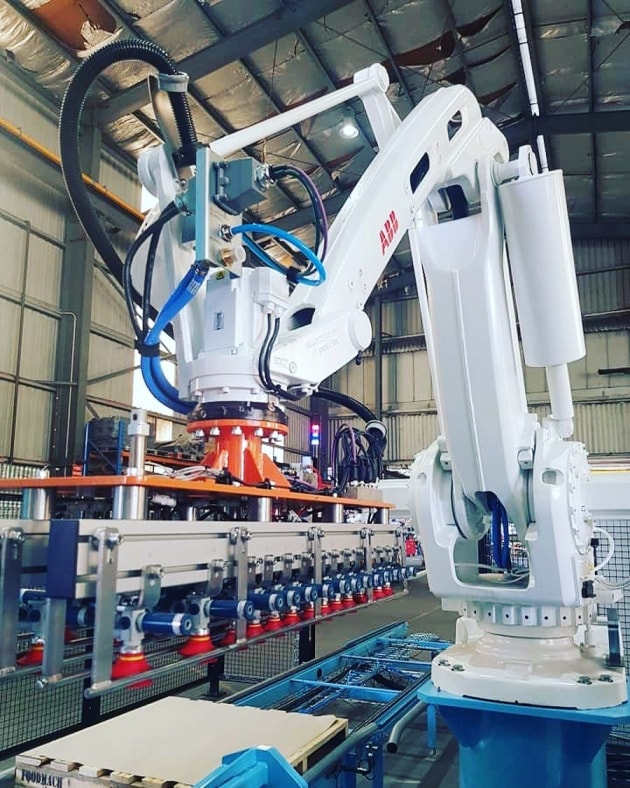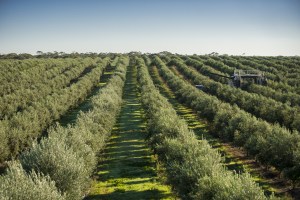As Australia’s craft beer industry goes from strength to strength, craft brewers are finding new ways to increase production rates with help from integration specialists. Experience with high speed beverage lines is a strategic advantage, writes Foodmach’s CEO Earle Roberts.

Established in Hindmarsh in 2014, South Australian craft beer brewer Pirate Life was acquired by Carlton & United Breweries (CUB) in 2017. Plans for a large-scale expansion and quadrupling of production through a new facility in Port Adelaide were well advanced prior to the acquisition and proceeded quickly after the takeover.
A $15 million Port Adelaide brewery and canning facility was touted to be the engine behind Pirate Life’s expansion into the Australian and international beer markets. The vast 10,000m² floor space of the former Dalgety Wool Store was transformed into a customised, energy-efficient, 50-hectolitre brewhouse complete with a packaging facility, taproom with a 22-yard bar, shop and entertainment area.
At full capacity, the Port Adelaide Brewery is designed to produce over eight million litres of beer annually. Pirate Life co-founder Michael Cameron said that the brewery intended to produce between 40 and 45 new beers in its first year of opening.
Pirate Life’s fully automated brewery needed a canning line equal to the task. It had to be fast enough to be able to manage current and future demand for Pirate Life brews and flexible enough to keep up with changing packaging formats and pallet patterns.
Higher speeds for less
The Foodmach team has developed its beverage expertise by designing and installing canning lines at large operations running at 1000 to 2000 cans per minute. Although Pirate Life runs at 15,000 cans an hour or 250 cans per minute – which is 15 per cent of the speed of a big canning line at a larger brewery – applying those learnings around line control and accumulation to smaller craft brewers such as Pirate Life results in extra output and efficiency without extra capital expense.

Pirate Life had ordered some excellent pieces of equipment to automate its production line, but even top-of-the-line equipment is only as fast and efficient as the conveying and upstream/downstream equipment. The overall packaging line speed all comes down to the integration. Foodmach custom-designed the Pirate Life canning line for optimal results based on space and budget.
The project scope included the design and supply of a conveyor system, including conveyor interfaces with third party equipment, and a can depalletiser and Robomatrix palletising system. Foodmach also supplied an ionised air rinser, can dryer, Markem-Imaje labelling and laser coding solution and Robopac pallet wrapper. All equipment was installed and commissioned by our team and integrated with a new filler, case packer and other OEM equipment.
Future proof
The aim of any skilled integrator is to prepare manufacturers for Industry 4.0 integration. The new Pirate Life canning line is LMES Ready, to allow for future integration of a Line Manufacturing Execution System. With the horizontal (machine to machine) line integration in place, it’s a much simpler task to add in a plant metrics reporting tool and vertically integrate with higher level management systems. The new canning line is a few simple steps away from becoming a smart factory.
Flexibility is critical for any new packaging line. The Robomatrix palletiser features Foodmach’s Robowizard pattern forming software, which allows the operators to make adjustments to each layer and implement new pallet patterns quickly and without the need for external resources. The software uses a simple drag and drop interface, no complicated software engineering required, which means that Pirate Life can change pack sizes or pallet configurations with ease. The new trend for slim cans will easily be accommodated in the future if required.
Gentler container handling
There’s almost just as much art to gentle, automated container handling as there is to brewing craft beer. The right conveying and accumulation ensures the cans at Pirate Life are in mint condition throughout the canning and packaging process.

The automatic depalletiser Foodmach supplied to Pirate Life is a robustly built machine, with the innovative technology and design elements commonly supplied in machines for high speed breweries. It includes automatic pallet changeover (no down-time when changing pallets) and strap removal station, and a sweep with integrated layer squarers controlled by a variable speed drive for smooth transition of the cans on to the conveying system. It incorporates an automatic top frame and layer sheet removal system, and clamps to hold the sheets when sweeping the layer. The CAT 3 safety rated machine with hoist locks and electrical hardware ensures safety compliance with AS.4024
Safety and success
Safety is a major consideration for craft brewers. When it comes to an accident it doesn’t matter if you’re a large multinational or small operation. The consequences to employees and the legal liabilities of the directors remain the same. Foodmach’s safety expertise ensures that Pirate Life’s canning line meets Australian and International Safety Standards.
The new canning line has enabled Pirate Life’s proposed expansion and has facilitated exports to international markets including the United Kingdom, New Zealand and Hong Kong.
Foodmach is the sponsor of the Food & Drink Business Top 100 Australian Companies report and a proud member of the Australian Packaging and Processing Machinery Association (APPMA).







